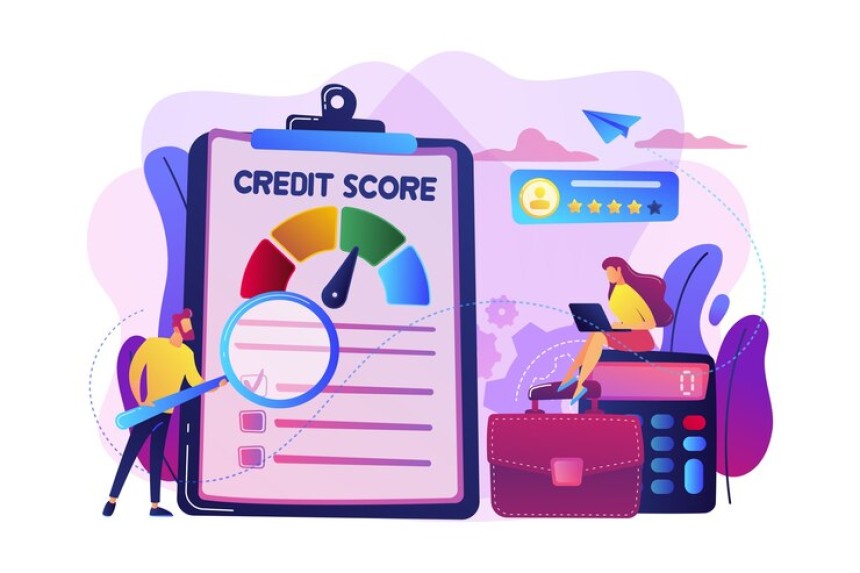
How Long Does It Take Build Credit from 0 to 700?
Going from a 0 credit score to a 700 can be done within 1 -2 years. You must understand how to utilize credit and have a good payment history.
Building credit from scratch to a score of 700 can be a significant financial goal, and the time it takes can vary widely depending on several factors. Here’s an in-depth look at the process, factors that influence your credit-building journey, and strategies to help you reach a credit score of 700.
Understanding Credit ScoresCredit scores are numerical representations of your creditworthiness, calculated based on your credit history. The most commonly used credit scores are those developed by FICO and Vantage Score, with scores ranging typically from 300 to 850. A score of 700 is considered good and demonstrates that you are a reliable borrower.
Key Factors in Building Credit- Credit History: The length of time you've had credit accounts impacts your score. A longer history generally helps improve your score.
- Payment History: Your track record of making timely payments is crucial. Late payments or defaults negatively affect your score.
- Credit Utilization: This is the ratio of your credit card balances to your credit limits. Lower utilization is better for your score.
- Credit Mix: Having a variety of credit types, such as credit cards, installment loans, and retail accounts, can benefit your score.
- New Credit: Frequent applications for new credit accounts can lower your score temporarily.
Building a credit score from 0 to 700 typically requires consistent effort over time. Here’s a rough outline of what you might expect at different stages:
Initial Stage (0-6 Months)- Opening Accounts: Start with a secured credit card or a credit-builder loan. Secured cards require a deposit that serves as your credit limit, while credit-builder loans are designed to help build credit.
- Establishing Payment History: Ensure timely payments. Even a few months of on-time payments can start positively influencing your score.
- Credit Utilization: Keep credit utilization low by using a small portion of your available credit and paying off balances in full.
- Building History: By now, you should have a few months of positive payment history. Aim for at least one year of on-time payments to start seeing a significant impact on your score.
- Increasing Credit Limits: If you’re responsible with your current credit, you might receive offers for credit limit increases. This can help lower your credit utilization ratio.
- Diversifying Credit: Consider adding a different type of credit, such as a small personal loan or an installment loan, if you only have credit cards.
- Strong Payment History: By this stage, if you’ve maintained a good payment history and low credit utilization, you should see noticeable improvements in your credit score.
- Monitor Your Credit Report: Regularly check your credit reports for errors and dispute any inaccuracies. You can obtain a free copy of your report annually from each of the major credit bureaus (Equifax, Experian, and TransUnion).
- Avoiding Hard Inquiries: Limit new credit applications to avoid hard inquiries that can temporarily lower your score.
- Achieving a 700 Score: With consistent good habits over a couple of years, reaching a 700 credit score is achievable for many individuals. Your longer credit history, combined with responsible credit use, will contribute to this milestone.
- Maintaining and Improving: Continue practicing good credit habits to maintain and potentially improve your score further.
- Secured Credit Cards: These are great for building credit as they report to the major credit bureaus and help establish a positive payment history.
- Credit-Builder Loans: These loans are designed to help build credit. You borrow a small amount, which is held in a savings account until the loan is repaid.
- Authorized User: Consider becoming an authorized user on a responsible person’s credit card. Their positive credit history will reflect on your credit report.
- Small Installment Loans: Having a variety of credit accounts, including installment loans, can help improve your credit mix and boost your score.
- Regular Monitoring: Use credit monitoring tools to track your progress and spot any issues early.
- Late Payments: Ensure you set reminders or automate payments to avoid missing due dates. Late payments can have a severe impact on your credit score.
- High Credit Utilization: Keep your credit utilization below 30% of your total credit limit to avoid negatively affecting your score.
- Errors on Credit Report: Regularly check your credit reports for inaccuracies and dispute any errors to ensure your score reflects your true creditworthiness.
Building a credit score from 0 to 700 typically takes a few years of disciplined financial behavior. The exact timeframe can vary based on individual circumstances and the strategies employed. By understanding key credit factors, maintaining good financial habits, and monitoring your progress, you can achieve a strong credit score and set yourself up for financial success.
Additional Resources
- AnnualCreditReport.com: For free annual credit reports from each of the major credit bureaus.
- Credit Counseling Services: For personalized advice on building and managing credit.
By following these guidelines and staying committed to your financial goals, you can build a solid credit history and achieve a credit score of 700 or higher.





